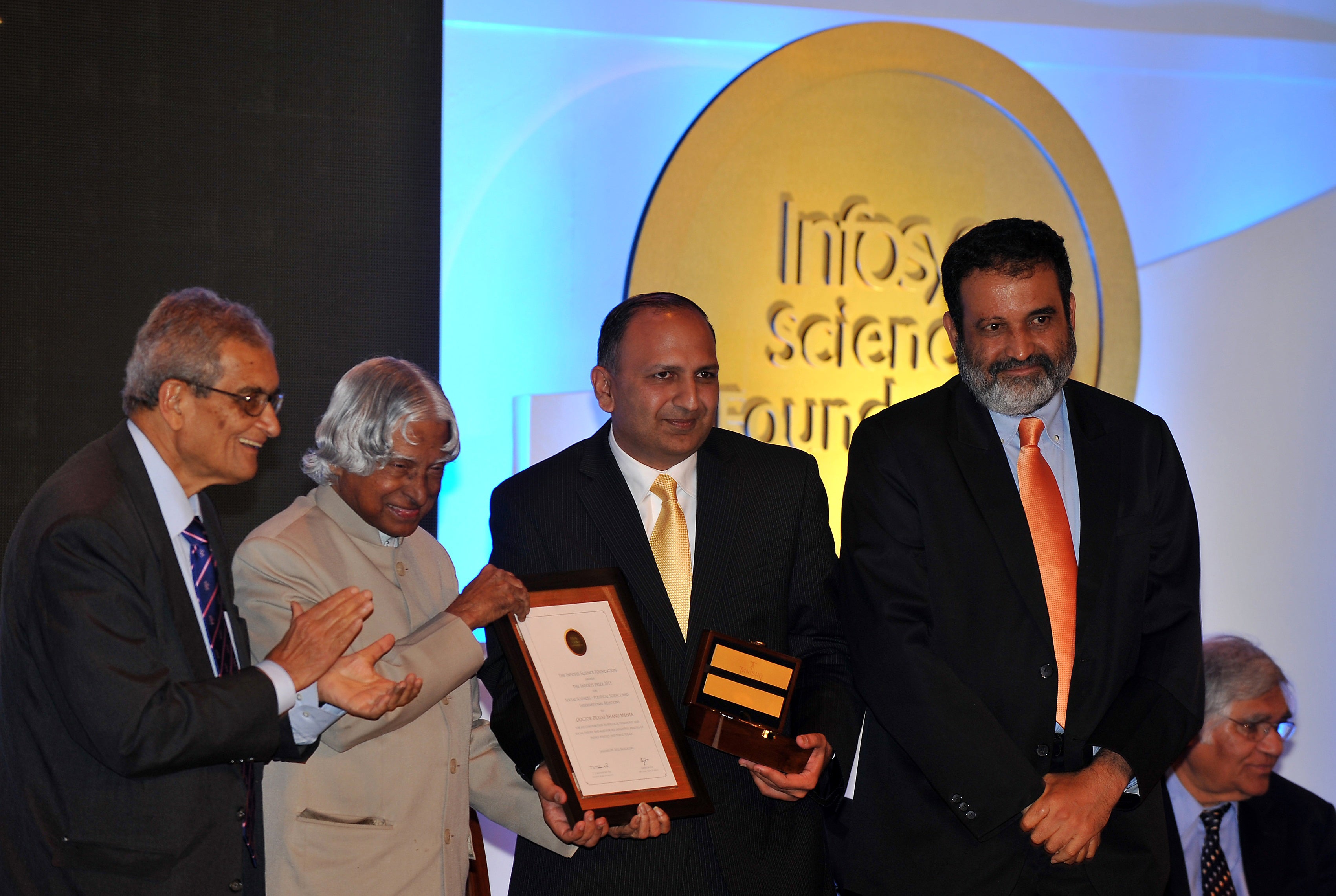India’s top liberal university in crisis amid resignations and reports of ‘political pressure’
Pratap Bhanu Mehta, a critic of the Modi government, says he is resigning because he became a ‘political liability’, as Stuti Mishra reports from Delhi


One of India’s top liberal universities has been rocked by back-to-back resignations of top faculty members, allegedly due to the fact that one was a vocal critic of the Narendra Modi government.
Dr Pratap Bhanu Mehta, 54, a political scientist and a professor at Ashoka University in Delhi, said in a resignation letter dated 15 March that his “association with the university may be considered a political liability”, reigniting a national discussion on the consequences of criticising Mr Modi and his government in India.
It comes at a time when plenty of India’s top universities are in turmoil following student-led protests and years of increasing clampdown on dissent, as critics of Mr Modi’s Bharatiya Janata Party (BJP) government have alleged harassment from the authorities.
Mehta, who also writes columns for the Indian Express, talks about the “risks” associated with his writing in his letter, which was quoted by Indian media outlets. In his columns, he has criticised what he calls the divisive politics of the BJP and said its agricultural reforms, against which thousands of farmers have been protesting near Delhi for months, will marginalise the farming community.
He said his decision to quit came after a meeting with the founders of the university.
"My public writing in support of a politics that tries to honour constitutional values of freedom and equal respect for all citizens is perceived to carry risks for the university. In the interests of the university I resign," he said.
Read more:
Following Mehta’s resignation, a colleague of his and former chief economic adviser to the Modi government Arvind Subramanian handed in his resignation too, calling Mehta’s exit “ominously disturbing” for academic freedom.
He also said Mehta’s resignation was a result of the university’s inability to protect academic freedom and expression, according to the Indian Express. “The university’s commitment to fight for and sustain the Ashoka vision is now open to question,” he said.
Similar concerns have been voiced by other academics who allege the Hindu nationalist Modi government is targeting India’s elite liberal arts institutions one by one, as part of a larger clampdown on dissent.
Apoorvanand, a writer and academic who said he had also been at the receiving end of government intimidation, told The Independent the authorities have “systematically destroyed” the system of public higher education over a period of seven years “by appointing pliable or ideological vice-chancellors and by unleashing goonda (criminal) elements in them.”
Students at government-funded universities have been booked on anti-terror charges and faced intimidation to prevent them holding debates and discussions critical of the administration. On 5 January 2020, a mob of over 50 masked men and women with rods and sticks attacked students inside the campus of Jawaharlal Nehru University in Delhi, after which 39 students and faculty members were injured. Eyewitnesses claimed the police did not intervene during the attack.
Apoorvanand says a range of techniques are used to clamp down on free speech and ensure the university administration toes the government line. “For example in Delhi University, we don’t get spaces to discuss matters like Kashmir, if I want to do that I won’t get a hall in Delhi University,” he says, explaining the pressure and intimidation universities have been feeling.
He says a climate a fear has also ensured universities do not invite people to talk who might be critical of the government, or organise discussions on sensitive issues. Chapters written by certain personalities in academics have been removed, he says, as they are termed “maoists” or “urban naxals” (terms coined under the Modi government to describe intellectuals who criticise them).
“It is clear that any kind of difference of opinion or any kind of academic freedom is not tolerated by this government,” says Shabnam Hashmi, a human rights activist. “This [Dr Mehta’s] is not the first case, from other academic universities and media houses, so many people have been pushed out.
“The whole idea of setting up liberal universities,” she says, “was that they were supposed to be along the lines of what we have in the US and the UK, and provide the same kind of liberal education and an atmosphere where you have the right to think freely.
“Under Trump, the democratic institutions in the US stood up to him. The way our democratic institutions have crumbled is very sad,” she says.
Following the resignations, Mehta’s former faculty and students and alumni bodies have released statements condemning the university management and alleging that it was “quite plausible” the resignation comes as a consequence of the professor’s public role as a critic of the government.
Protests by the student body demanded the university offer Mehta back his job and make his full resignation letter public, after seeking his permission. The faculty said the resignation set a “chilling precedent”.
A report published in the Ashoka University student-run news website The Edict hinted at an alternate view on Mehta’s resignation, alleging that it would smoothen the administration’s efforts to acquire a new plot of land to expand the campus. It did not provide a named source for this, however.
Mehta declined to comment when contacted by The Independent, while the university did not immediately respond to a request for comment.
Ashoka, located near the northern perimeter of Delhi, is considered one of the country’s top institutes for liberal studies and describes itself as “a pioneer in its focus on providing a liberal education at par with the best in the world”.
Join our commenting forum
Join thought-provoking conversations, follow other Independent readers and see their replies
Comments